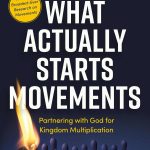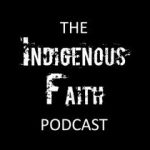 Does non-CPM, non-DMM church-planting training still happen? (You might ask, why would anyone want to know that? Who could possibly still want to offer something in the traditional, non-DMM way?) The truth is, we recently received an inquiry on this. We’ll allow him to remain anonymous, but from what we could gather, he just wanted to offer a voice from the other side of the aisle — if there’s still an aisle? So, would anyone be willing to click “Comment” on the web or app version of this item to tell us — does anybody still teach the legacy approach to church planting?
Does non-CPM, non-DMM church-planting training still happen? (You might ask, why would anyone want to know that? Who could possibly still want to offer something in the traditional, non-DMM way?) The truth is, we recently received an inquiry on this. We’ll allow him to remain anonymous, but from what we could gather, he just wanted to offer a voice from the other side of the aisle — if there’s still an aisle? So, would anyone be willing to click “Comment” on the web or app version of this item to tell us — does anybody still teach the legacy approach to church planting?












I guess I am still teaching a somewhat more traditional form of cross-cultural church-planting. The textbook is: The Messenger, The Message and the Community. But I will let others decide if it fits with DMM or not.
We have CP training that is not DMM based.
I don’t know what the various acronyms used stand for, but this recent article explains how the denomination to which I belong approaches church planting.
http://www.affinity.org.uk/foundations-issues/issue-72-article-3-building-a-church-planting-movement-in-a-traditional-denomination
God is powerfully using DDM and CPM in a growing number of places around the world. It has yet to prove itself as a strategy for church planting that will be widely embraced and work well in the Western world. The “either/or” rather than “both/and” communication in this post regarding church planting is not helpful.
Thank you for this comment Blake. The either/or is not helpful but is often presented as the only option. In fact, it is recommended to only use DMM exactly as it is taught. (At least that was the impression I got when I went through the training with David Watson.) The reality in places like France is more nuanced than the either/or approach.
” As the Father has sent me so I am sending you” was the command Jesus gave his disciples. The question is what was Jesus’ mission? Was it church planting or Kingdom announcement?
(the gospels speak about 140 times of the Kingdom of God and only twice about the church)
I believe if we ‘just’ focus on church planting efforts we will miss out what Jesus wants to accomplish in this world- namely to extend his Kingdom to all speres of society and to all people. The question for me is: how do we teach that to the average church goer that his work from Monday to Sunday is VERY vital in the Kingdom of God. If every believer would have a Kingdom vision then we would see more people and more societies being transformed by the power of the Holy Spirit.
When we pray” Thy will be done on earth as it is in heaven” I believe we need to work that out in our day to day lives and ask ourselves the question: What will heaven look like in terms of values and ethics( no marginalized people, no poor pepole anymore, no rassism, no refugees anymore, no pollution and environmental damage anymore) and how to be live that out in our families, neighborhoods, cities and countries?
Jesus’s approach to people – relationship based often one to one – is more effective than any program in extending the Kingdom of God. The programs are ‘expert driven’ but the Kingdom is for every believer to embrace and seek.(Matth.6:33 But seek first his kingdom and his righteousness(the righteousness that counts in the Kingdom and in heaven( and all these things will be given to you as well”
Charles Brock still teaches traditional, indigenous church planting. His organization is called Church Growth International, and it is located in Neosho, Missouri.
There are many, many around the world who take a holistic and relational approach to disciple-making without a singular focus on “planting churches”. This is not as opposed to a DMM or CPM approach. Having said that, there are regions of the world that describe CPM as western humanistic missiology. I am also hearing a growing call for research on the lasting fruit or lasting kingdom impact from an approach that focuses just on planting local churches. Either way, Christ said that He would build His Church and we see ample evidence of Him doing just that. And for that, we should rejoice.
The roots of DMM are now being examined and churches are realizing the tenuous foundation it is built on. In a couple more DMM will ‘go away’ as a method that IS today endorsed by agencies. It is NOT what it appears today. Fads come and go, DMM is one of them
As a counterpoint, just to make sure it is voiced here, it seems important to note that disciple-making movement approaches (whether articulated as David Watson’s approach, or that of T4T, or that of Curtis Sergeant, or Zume, or DMM or under any other banner — they are all pretty much within + or – 10% similar) are largely finding root in non-Western cultures. Global South lands have embraced this approach and they are finding HUGE gains through it. That much is undeniable. It’s catching on much more slowly in the Global North — but maybe finally taking some root via deliverables like http://www.ZumeProject.com .
Either way, once disciples are in place and churches are formed, the church can care about the whole society — the poor, pollution, refugees, and more. The question is not whether we care about the whole gospel to the whole world, the question is — what’s the most effective way of making Jesus’ Name famous.
I LOVE this question “What’s the most effective way of making Jesus’ Name famous?”
I find one of the tricky things about understanding and connecting with others interested in church planting is figuring out how the different models differ since we tend to use the same terminology and cite the same scriptures, but that’s a “problem” that pops up in Christian history all the time. For a helpful comparison of CPM/DMM and more traditional church planting models, see http://www.ijfm.org/PDFs_IJFM/30_2_PDFs/IJFM_30_2-Esler.pdf
Many of the church planting networks in the US continue to train people who to plant churches that plant churches but without many of practices and assumptions we see in CPM/DMM. Some of these groups are very active. Many are tied closely to a specific denomination or tradition, which has its pros and cons. All of them offer assessment, training, and coaching for church planters. You might have your candidate check out http://www.acts29.com/plant-churches/ as a good example. The agency I serve with includes some Acts 29 church planters along with DMM practitioners and others.
I did some research a few years ago and easily dug up info on about 15 US-based church planting networks, some doing similar things internationally, plus clues that many more exist. Many are represented at events like https://exponential.org/
THese comments should all be helpful to the inquirer. Marti, appreciate your bringing Ted’s article up to our attention. Thanks!
If it seems there is a growing polarity/tension/conflict between advocates of traditional or “Proclamational” models as opposed to CPM/DMM models, that’s because, for many, there IS. I’ve been a strong advocate of the possibility of hybrid models in places like the USA (in fact, I’m here this week exploring that with a church of 2000). But those willing to consider hybrid models seem few and far between. Many (most?) have “chosen sides” because they say it’s impossible to do both well. One thing is certain: Many attribute the amazing responses in arenas like the Muslim world (more Muslims have come to Christ in the past 15 years than had come to Christ in the previous 15 CENTURIES) to the new paradigms that have been birthed through a CPM/DMM approach. It will be up to you (the reader) to choose an approach. Pray hard. : )
I Kings 20:28 talks about whether can work in the hills or only in the valleys. Following Jesus’ example is always a better idea. God is not a God of only the 3rd world countries where following Jesus’ example in DMM will work. God is working in DMM here in the USA, but you have to look outside the Western Tradition to see it. There are “hybrid churches” that are adopting some of the “counter-intuitive” principles of multiplication of disciple-making disciples rather than a “One-Man Show” attractional model.
OOPS! God of the hills, not of the valleys. My bad!
I’d echo this recommendation for Radius International. Anyone seeking training to plant churches among unreached people groups should consider Radius.
As for organizations, there are still a few out there who use a “proclamational” model. Ethnos360, Global Serve, Christar, there are a bunch of smaller ones out there as well.
With all due respect to Jay, I find Radius very biased. I think a healthy discussion about church planting (I prefer to call it disciple making because Jesus asked us to make disciples, not plant churches) is needed, but Radius has proven time and again that they are not yet ready to enter that discussion in a healthy manner.